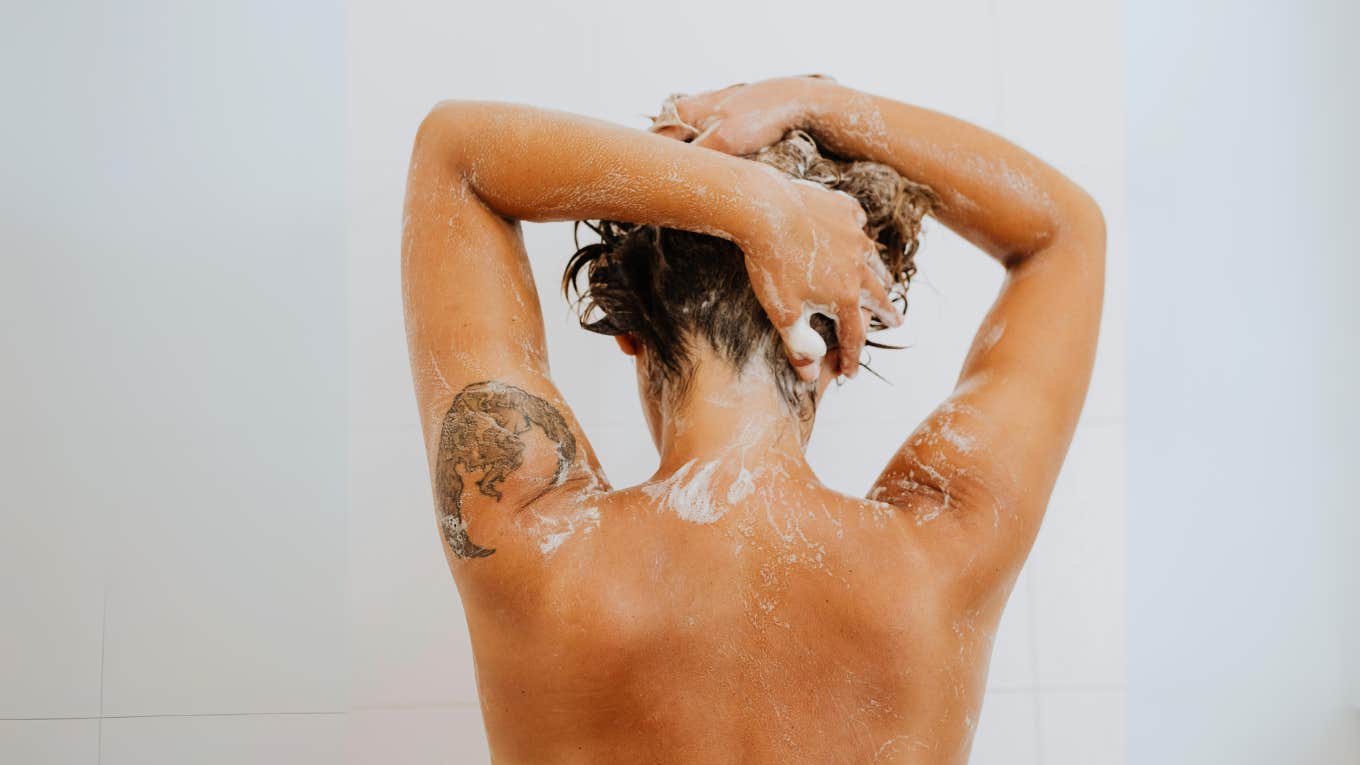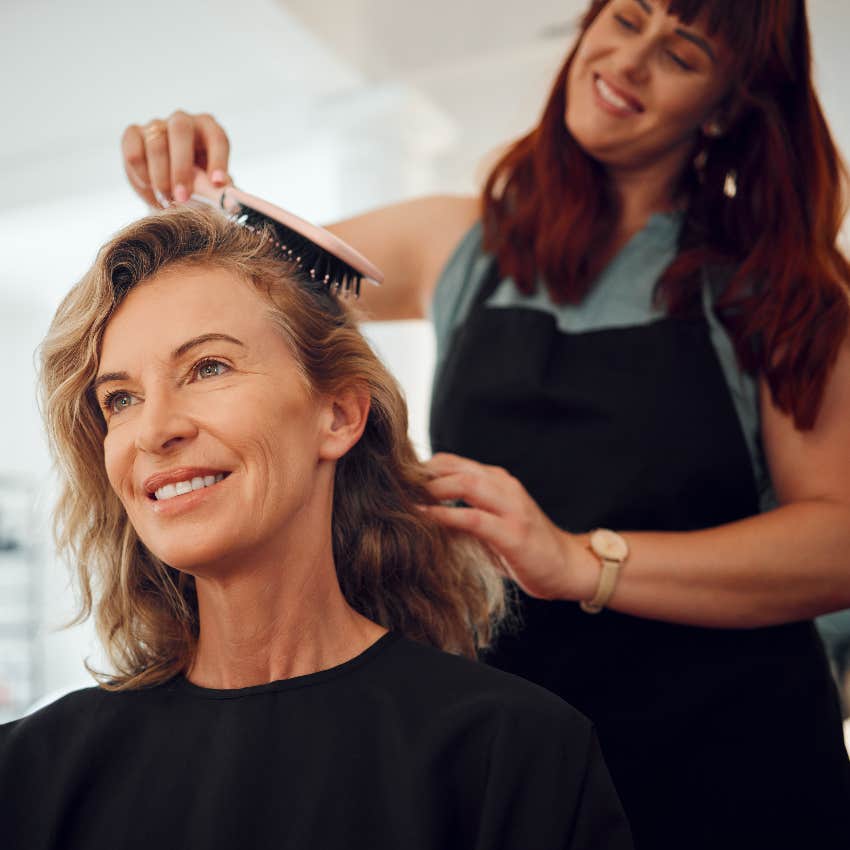Washing My Sick Wife's Hair
Supporting my spouse as she recovers the hair — and the self-image — cancer treatment took from her.
 Karolina Kaboompics | Pexels
Karolina Kaboompics | Pexels My wife didn't wash her hair during chemotherapy. Chemo gave her no hair to wash for six months. Treatment for breast cancer also took away her strength and her self-image. When I started washing Debbie’s hair after it began to return, it was because she needed my help. She doesn’t need my help anymore, but I still give her a shampoo once in a while. The only change is how I’m supporting her.
Her final chemotherapy infusion was in late winter. Soft fuzz appeared as the weather warmed, very gray and a little curly at first. With nothing but wisps of hair on her head, she still felt better than when both self-consciousness and cold weather forced her to cover her head with a scarf, a knit cap, or the wig she despised.
Debbie’s limited strength forced her to sit in the shower. Chemo wiped out her stamina so thoroughly that she even sat on a stool to towel dry or brush her teeth. She couldn’t keep her arms up to her head long enough to wash her hair, even seated.
My wife, sick with cancer, asked me to wash her hair for her.
We discussed the mechanics of how this would work and settled on using the kitchen sink since it had a spray hose. Her limited stamina made kneeling on a chair over the sink difficult. Most of her support came from putting her weight on the edge of the sink.
As we started it was quickly clear my idea of the right water temperature didn't match hers. I spent time adjusting the faucet, seeking a place neither too hot nor too cold for my precious Goldilocks. I also learned to scrub her scalp much more gently than I did my own. Since she was leaning face down I took care to cup my hand over her forehead when I was spraying to keep water out of her eyes.
Giving Debbie that first shampoo, I knew I could do more than just wash her head. It was a chance to help her start feeling good about herself again. She didn’t feel feminine or pretty. My ambition was to change her from unhappy to ask me for help, to happy I was taking care of her.
It took only a few shampoos at the kitchen sink for Debbie to decide it wasn’t going to work. Kneeling was uncomfortable. The edge of the sink was too hard to lean on. Invariably some water splashed onto her clothes. Once the shampoo was over, she didn't like the long walk back to her stool in the bathroom for the rest of the process. Instead, she asked me to wash her hair in the shower.
We crowded into the shower stall, Debbie on her seat.
Alert for ways to help her feel better about herself, I offered to wash everything: her body as well as her hair.
All she had to do was relax and enjoy. I soaped up my hands instead of using a washcloth. I washed her arms, her legs, her back, her breasts, and belly.
She scooted to the edge of the seat so I could wash and rinse her private parts. I helped her lean forward so I could wash her behind. When I was done washing her hair I spent extra time rinsing her, making a fuss about directing water across her shoulders and down her back. I was rinsing her and keeping her warm, but I was also trying to make her feel special.
As she toweled dry, Debbie told me the shower experience was a nice change. It was a little bit of pampering. The soft, slow, warm wash from my hands was a big improvement over the times I gave her a sponge bath on the bed, rushing so she wouldn’t get chilled. She was beginning to feel a little more natural after months of the unnatural effects of harsh drugs, bald head, and radiation. She asked me to wash her hair in the shower just about every weekend for the rest of the summer.
Her hair grew back and the curliness quickly disappeared. Her natural hair color returned with only a little gray mixed in. Longer hair was the one sign of progress Debbie could see. I had to point out all the other improvements in strength and stamina, which progressed slower and were less obvious.
By August, Debbie could stand for her entire shower. She could wash her own hair. She also enjoyed the indulgence of me stepping in to wash for her. She called it a sweet little escape from the dull routine of her recovery.
Her morale got a big boost when her hair had grown long enough to need some trimming. Right before chemotherapy, she’d had her hair cut into a very short pixie. She expected to lose her hair and didn’t want to deal with finding big chunks on her pillow. A year later, hair back to about the same length as that pixie, she made her first salon visit as a cancer survivor. She was also finally rediscovering an interest in which earrings to put on and what clothes to wear.
With Debbie’s recovery, we began a slow return to intimacy after months of involuntary separation even while we still slept together.
Debbie hadn’t thought of the earliest showers as intimate. She labored to get through them. I took showering together as an opportunity to give her gentle touches and do things for her exactly as she wanted. I got encouraging signals that I was making her happy. A brief smile after I made a joke was the first smile I’d seen since before chemo began. She was surprised when I commented on her smile. She’d been seeing my smiles but hadn’t noticed she wasn’t smiling.
Showers are practical hygiene, but also good, clean fun. Jokes, comments, and occasional kisses while washing helped gently pull her toward seeing herself as a desirable woman once again. The shower is a great place for flirting.
Debbie’s cancer treatment ended a few years ago. She is staying clinically cancer-free. She's pretty strong now. I think she's pretty. Most importantly, finally, she thinks she's pretty. She has a full head of hair and her skin has a healthy glow once more. She's back to regular visits to the hair salon. She’s back to going for long walks with me. Sometimes I offer to wash her hair, sometimes she wants me to shower with her.
 PeopleImages.com - Yuri A | Shutterstock
PeopleImages.com - Yuri A | Shutterstock
Washing her full head of hair is a contrast to how she looked — and how she felt about herself — on our first trip to the kitchen sink.
Debbie complimented me the last time I washed her hair. She said I was thorough. I like being thorough, in part to prolong our time together in the shower but primarily to give her the best care. It's a pleasure to take good care of her. A little intimacy is good for both of us. There’s no downside to continuing to boost her morale and her self-image by washing her hair. It’s good for a healthy relationship.
Keith Schleiffer is a biomedical engineer. He's been published by Good Man Project and has his name on a few patents.
